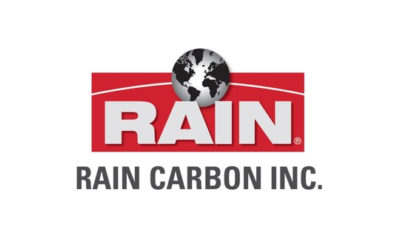Rain Carbon opens state-of-the-art rubber laboratory at distillation and advanced materials facility in Germany
Stamford, CT – Rain Carbon Inc. has opened a state-of-the-art rubber laboratory at its production facility in Duisburg, Germany. The $1.3 million laboratory comprises a complete processing line, starting with a rubber bale cutter, continuing with a highly sophisticated lab station for internal mixing, and concluding with complete analysis employing cutting edge rubber process and dynamic mechanical analyzers.
“This investment will enable Rain Carbon to significantly improve our technical services and targeted product development for the rubber industry, with the intention of positioning our company as a preferred partner in terms of applications and R&D cooperation,” said Kris Vanherbergen, executive vice Ppresident of Carbon Distillation and Advanced Materials.
Rain Carbon produces approximately 10,000 tons of performance resins annually for the rubber industry, targeted at improving grip and reducing rolling resistance in tire compounds, as well as enhancing the mechanical dynamic properties of technical rubber articles. Prior to establishing this new lab, reliance on a third-party lab inhibited the product development and internal knowledge required to establish strong technical relationships.
“Our customers want to have a detailed understanding of the resins we supply and their performance,” said Dr. Jun Liu, head of research and development and application technology for the company’s Carbon Distillation and Advanced Materials business unit. “Unfortunately, we could only provide customers with analytical results in the past, which did not foster a stronger technical relationship. We are very pleased to be taking this step to enhance our technical and research and development support.
“With this significant lab investment, we can now look ‘left and right,’ rather than just ‘straight ahead,’” she added. “We can assess a broader range of variables giving us a much better understanding of our products and their performance, plus we can now evaluate how certain modifications will optimize our products for specific applications or result in a new resin.
“In addition, being able to conduct the testing in-house will improve our knowledge about the link between resin structure and performance,” Liu said. “This will enhance our credibility with rubber customers allowing us ‘to speak their language’ when it comes to key performance data related to grip and abrasion, dynamic loss factor, the interaction between rubber and filler, processing capability and more.”
Most important, she said, “This new rubber laboratory will enable Rain Carbon to develop new products for safer tires and better fuel economy, and that’s a win-win for everyone.”

